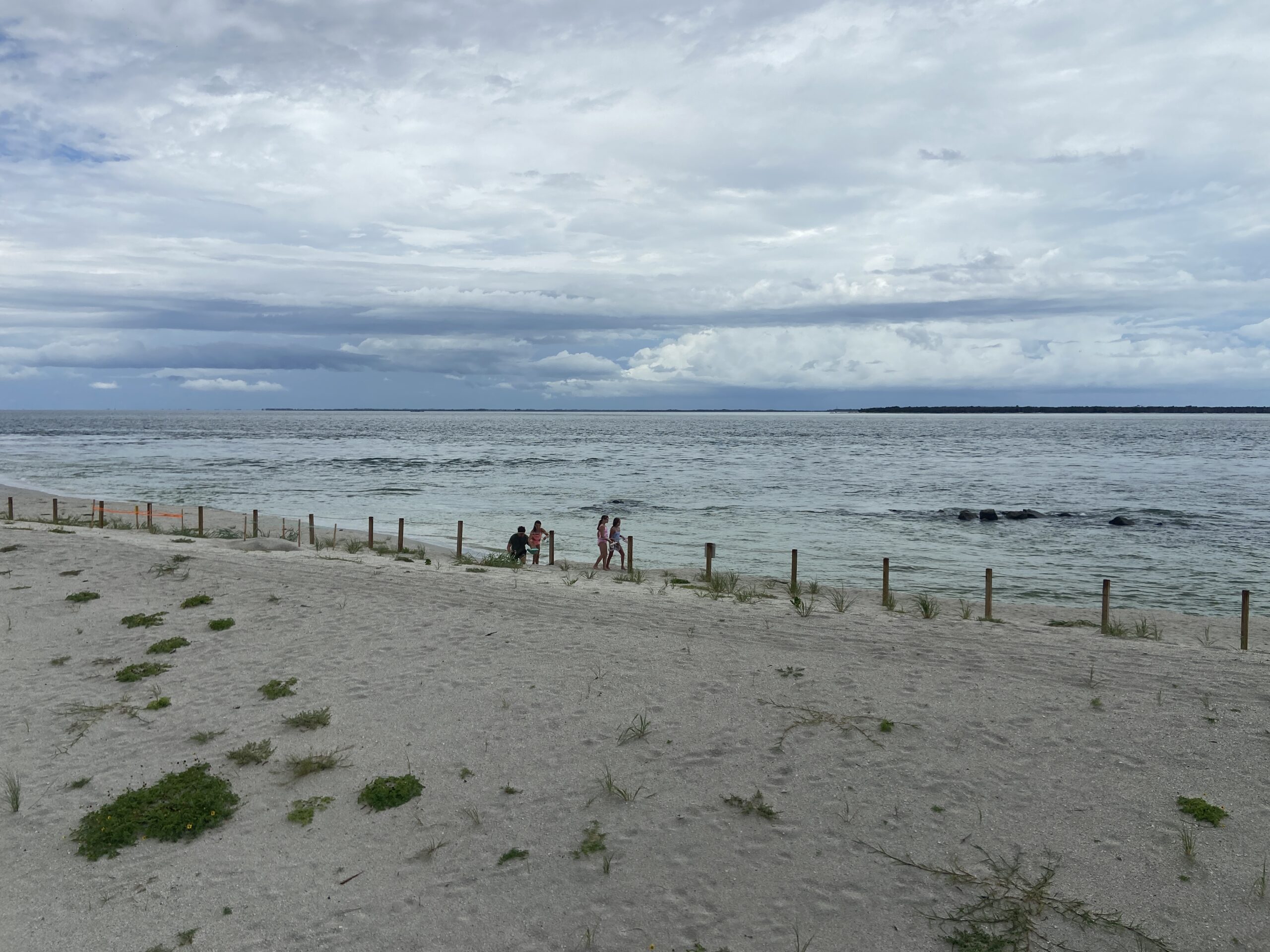Renourishment shortfall with parking rule

$4.2 million example
BY MARCY SHORTUSE
A proposed parking plan for Gasparilla Island will affect the island’s future beach renourishment funding and could include a tax for renourishment, according to an internal Lee County memo.
A July 2 email obtained this week by the Beacon was sent to commissioners and county staff from the Natural Resources Division of the county. The email states the need for additional renourishment funding if the Boca Grande parking plan passes and beach access streets north of 1st Street are closed. That funding could include an additional tax on Boca Grande through a Municipal Services Taxing Benefits Unit or MSTBU. Currently, Boca Grande has a Lee County surcharge for streetlights and iguanas, but the island is not charged for beach renourishment. The memo also says that the charges could be retroactive, and shows the county-allocated percentage more than doubling.
County staff, including County Manager Dave Harner, had not responded to questions by press-time about the loss of renourishment funding or the possibility of an additional MSTBU tax. The Beacon reached out Wednesday at 4:30 p.m.
The July 2 memo reads, “If the parking used to calculate the FDEP percentage changes, FDEP can recalculate a new percentage and request a refund of their portion.”
In regards to the possibility of a tax on residents of Boca Grande to pay for future renourishment, the memo reads, “A new economic study after parking revisions would be needed to inform what portion might be applied to an MSTBU if this policy was applied to Gasparilla as well.”
On Tuesday, the county posted the Aug. 5 ordinance; with it were a Business Impact Estimate and Financial and Administrative Impact Statement. All costs were listed with the draft ordinance as NONE.
The Beacon asked Lee County Commissioner and Chairman Kevin Ruane if he could tell us what the Florida Department of Environmental Protection or the Army Corps of Engineers had told him in discussions involving the potential elimination of parking at the beach access streets, and if the island would lose funding for beach nourishment projects because of the new regulations if the amendment was passed. Ruane emailed a previously published statement sent to the Beacon from the county from April 2025.
“The state’s criteria for funding are 100 parking spaces per mile of beach, or roughly 52.8 feet of shoreline for each parking space to gain maximum state funding. But if that is not available, there is a credit caveat. Credits can be given for things such as bus stops, bicycle racks and certain hotel/motel accommodations.”
U.S. Army Corps of Engineers Public Affairs Ofc. JP Robello was asked if anyone in their office was aware of the situation in Boca Grande regarding this potential reduction of public parking. Robello responded, “Changes in public use and access are evaluated prior to each cost-shared renourishment and the cost apportionment is adjusted accordingly. If public use and access is decreased by limiting parking availability and not providing a reasonable substitution (trolley, buses, etc), then the non-federal sponsor may end up paying a higher percentage of the cost-share.”
The state of Florida has a cost share that is at risk. Eligibility for Florida cost share is in 161.101(12), F.S., which requires “adequate public access,” and is implemented through rule 62B-36.007, Florida Administrative Code. It reads, “State cost share is subject to adjustment for the level of public accessibility calculated for beach management projects.”
There is a separate question, also unanswered.
On May 25, 2025, a staffer for Lee County comment replied on the United States Federal Register about an unmentioned delay in current storm-related funding for the upcoming renourishment:
“Flood Control and Coastal Emergencies (FCCE) funding was allocated, and we were anticipating the Corps to award a contract for nourishment in September 2025. However, progress has been stalled by ongoing real estate issues surrounding the extent and duration of construction easements.” The comment also included, “Meanwhile, the community of Boca Grande remains vulnerable to the impending tropical storm season.”
In the comment, which appears on the Federal Register, the county said that it would cover any cost if there was not proper access. The comment is online at regulations.gov/comment/COE-2024-0004-0027
It reads, “If necessary, Lee County is fully prepared and committed to paying 100 percent of the nourishment costs associated with private property that does not have an easement that covers the defined life of the project and provide for public access, just as was done in 2007.”
Editors note: Garland Pollard assisted in reporting in this story. Updates will be online at bocabeacon.com/parking.









